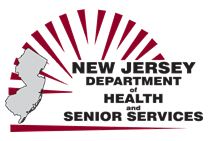In a huge win for the medical cannabis community, Los Angeles officials voted on Tuesday to rescind the marijuana dispensary ban they overwhelmingly approved just two months ago.
This is a textbook example of how medical marijuana professionals, advocates and patients can come together to force real political change.
Hundreds of medical cannabis dispensaries in Los Angeles can exhale – at least a little bit – as the most serious threat to their survival has gone up in smoke. Tangible threats remain, however. Dozens of dispensaries recently received warnings from the federal government to shut down, and officials warned that they would target more centers in the future.
The ban was initially supposed to go into effect in early September, and storefront MMJ centers began preparing to close their doors. But medical marijuana advocates mounted a well-organized, extremely successful campaign to gather signatures opposing the ban. That was enough to delay the ban for the time being.
Officials could have maintained their stance on the ban and let voters decide what to do whether in the March elections. But council members decided to avoid the steep expenses tied to a referendum and rescinded the ban on their own.
Los Angeles must still grapple with the future of medical marijuana in the city. Officials have been trying for years to reform the city’s lax MMJ regulations and weak industry oversight to counter an explosion of dispensaries and concerns that some of these business are engaging in illegal practices.
One group that represents dispensaries in the city – the Union for Medical Cannabis Patients – presented two potential solutions to council members during the meeting. One would require all dispensaries to completely comply with California MMJ laws and sell only enough cannabis for their patients, while the other would let Los Angeles create new regulations for centers.
James Shaw, director of the organization, said in a release before the meeting that the proposals will benefit patients, dispensaries and the neighborhoods surrounding the centers.
“Instead of fruitlessly trying to manage by quantity by limiting the number of associations, we should be regulating for quality,” Shaw said. “We’ve done the heavy-lifting in figuring out how to make regulation work, while avoiding further litigation, and we invite the City and the patient associations to study our proposals.”




